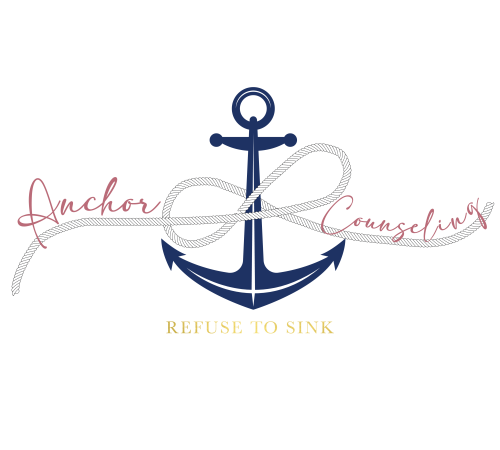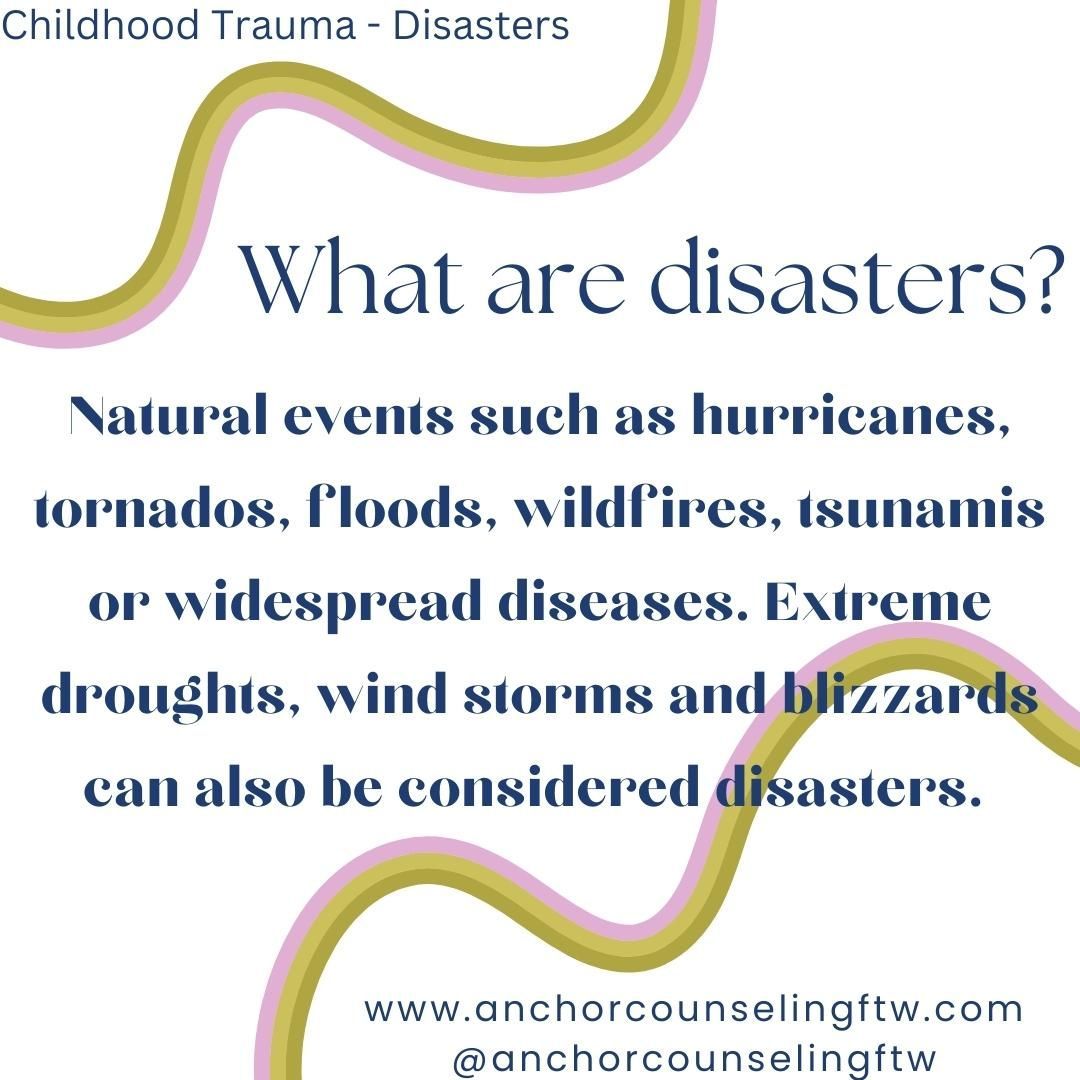
Disasters
What are natural disasters and how they can contribute to childhood trauma? These events happen frequently for some people and can be a source of anxiety. Those that are affected by a natural disaster can l lose their homes, belongings, school or even a family member or loved one. These events can happen to anyone and may happen several times over a person's lifetime. They can also leave a lasting impression on those that are involved.
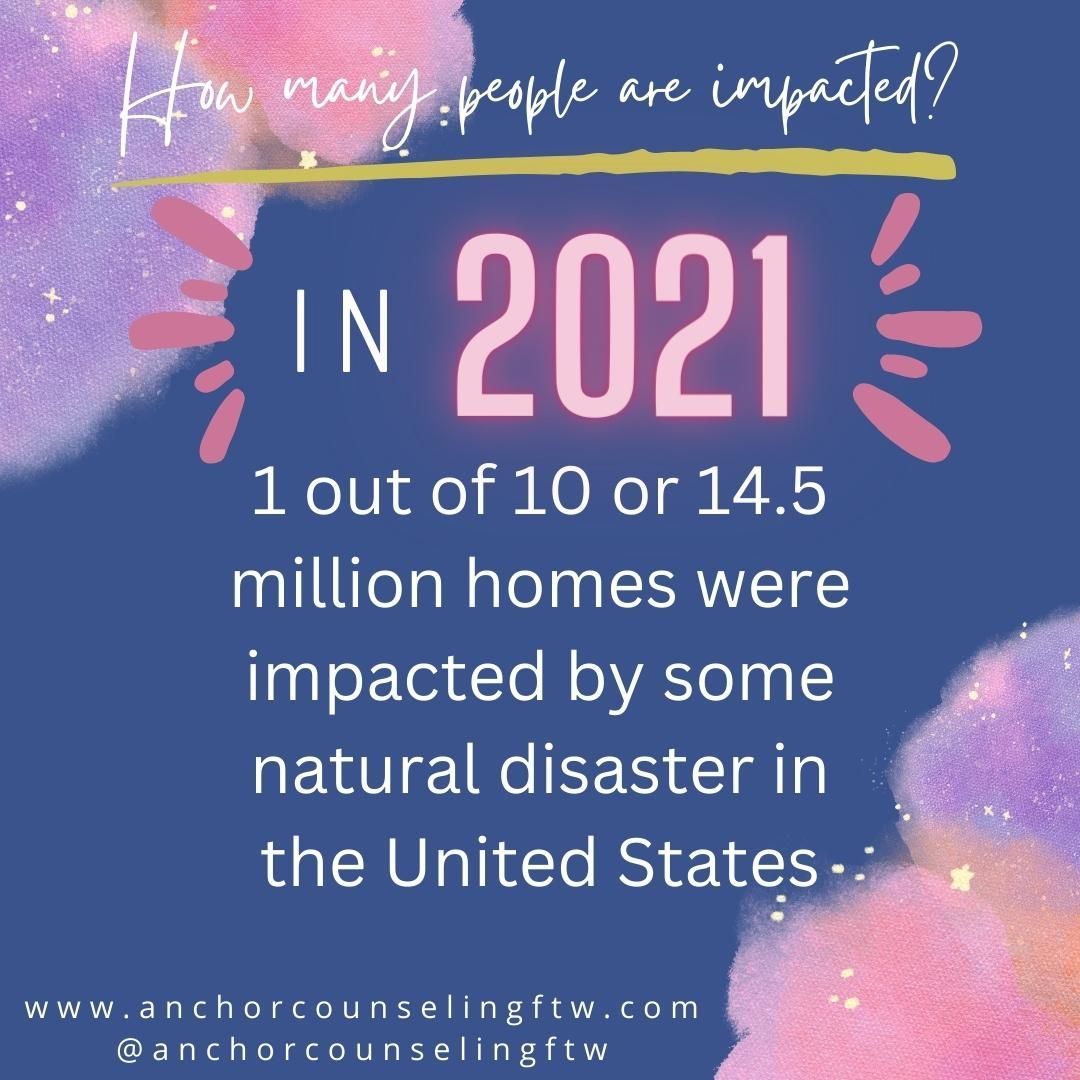
Impact of Disasters
Disasters happen frequently throughout the US. We frequently encounter tornados, hurricanes, floods, wildfires and sometimes blizzards. Last year 1 out of every 10 households experienced some form of disaster. We often do not think of natural disasters as taking a toll on our mental health but they can impact us, our families and communities. Children are often one of the most vulnerable populations for developing mental health issues after a natural disaster.
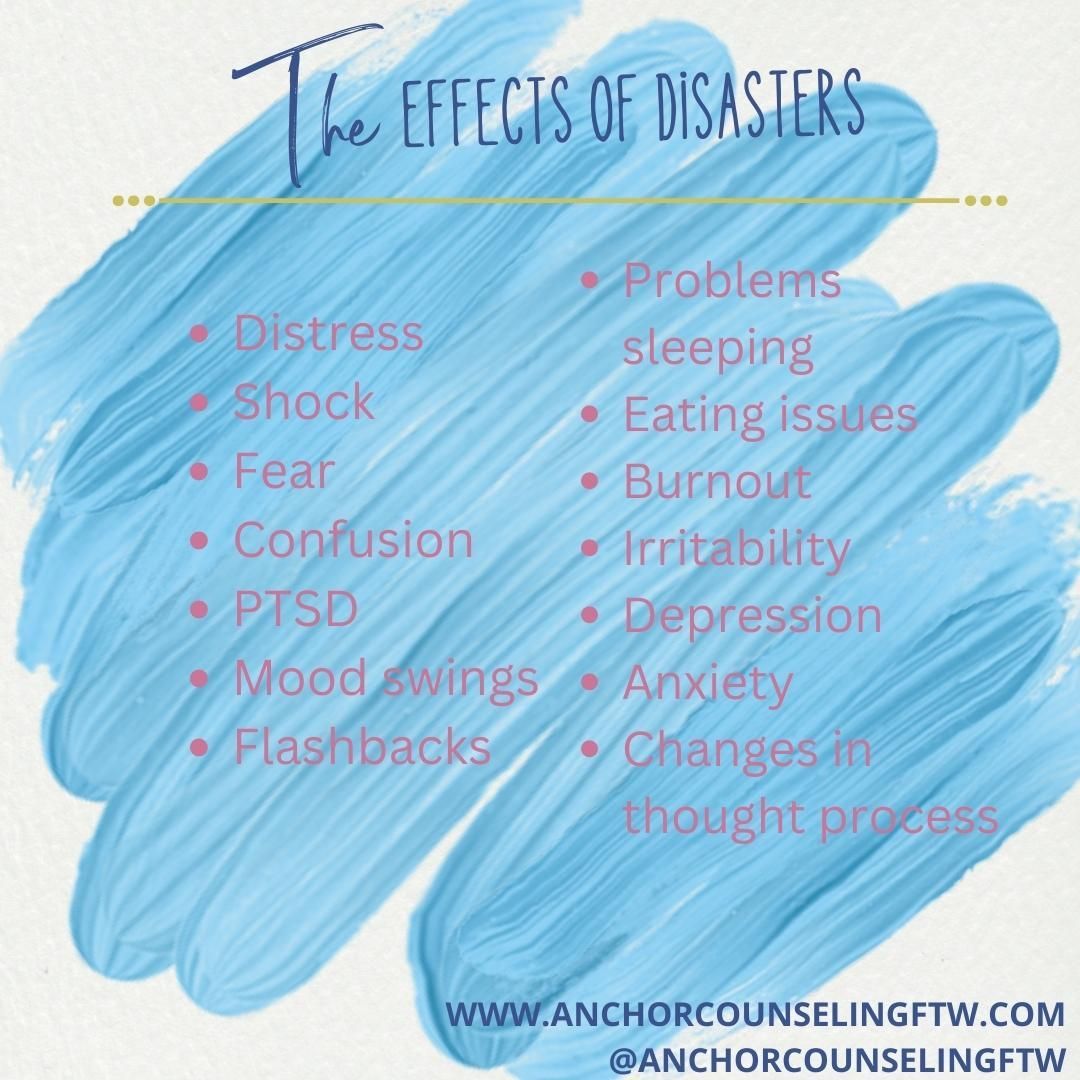
Effects of Disasters
If you have experienced a disaster or have a loved one that has, you may see some of these issues arise. Most people will have some kind of emotional response to an event. Natural disasters are no ones fault and cannot be controlled. This often makes people feel helpless and out of control which brings on other feelings.
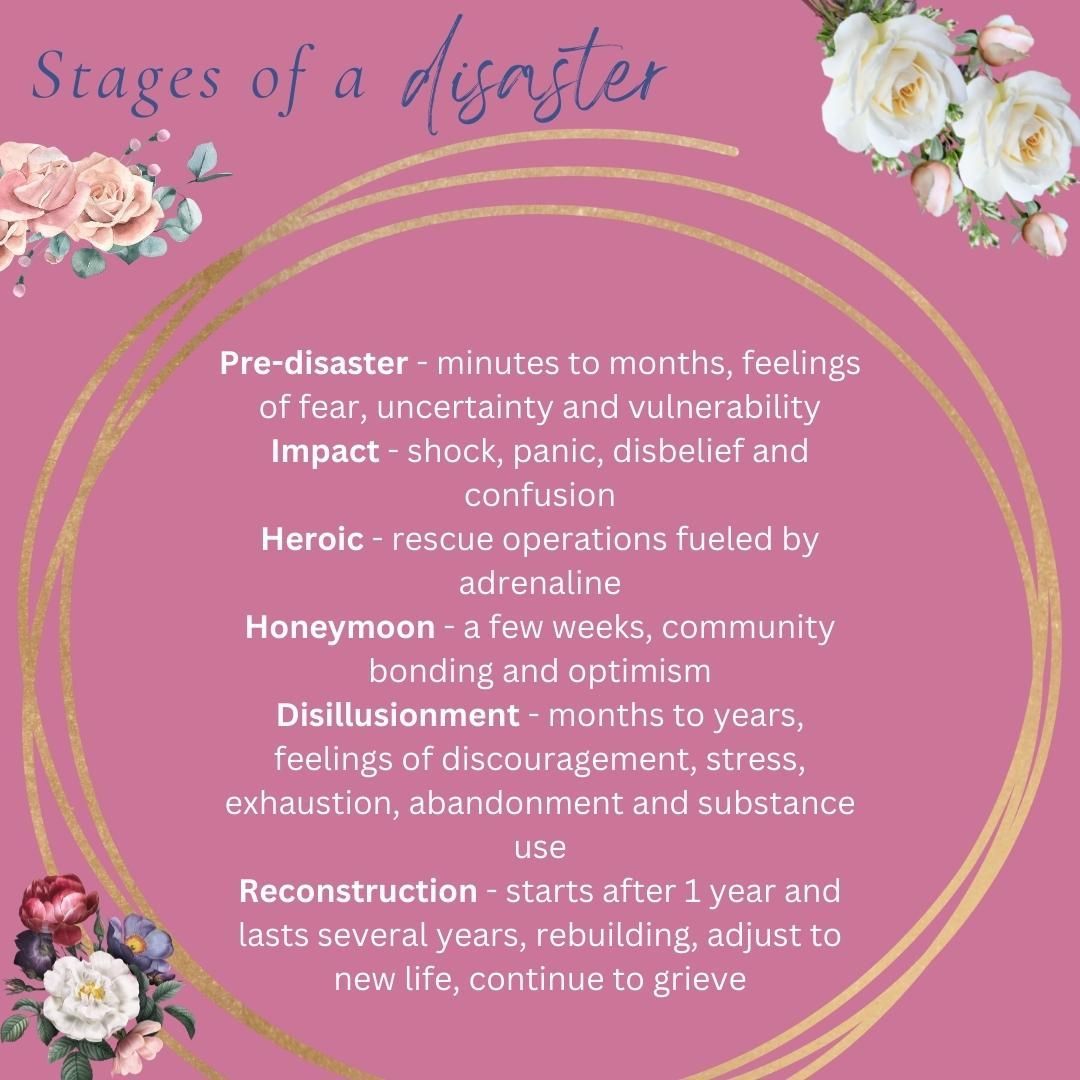
Stages of Disaster
When a disaster happens, there are several stages that people work through. These start prior to the event and often last years after the disaster has happened. Understanding that these are natural responses is important. Everyone will work through these stages at different rates. Allowing each person to recover at their own pace should be encouraged. If you or someone you know gets stuck in one of the stages you should reach out for help to overcome them.
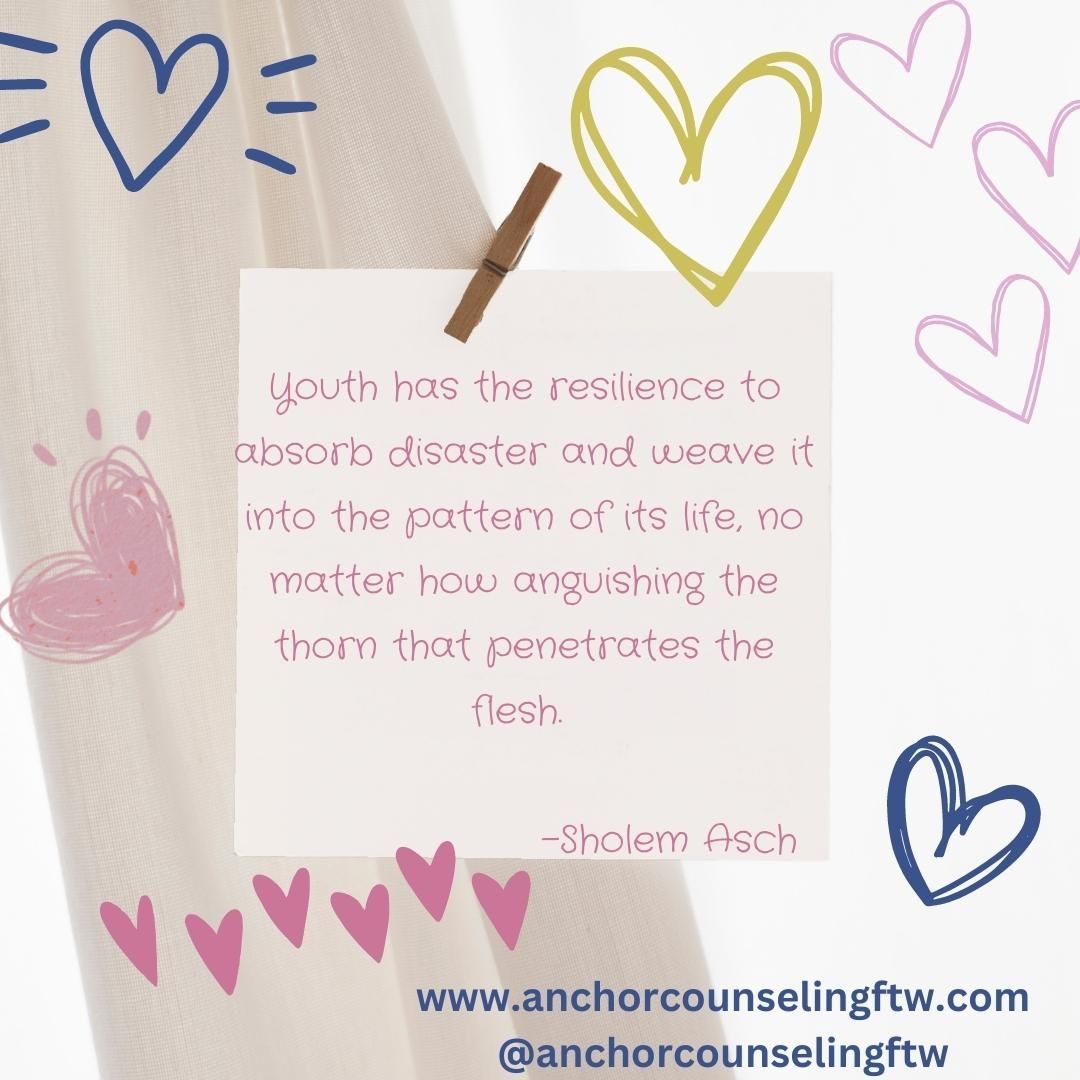
Absorbing Disaster
Disasters can take a toll on all aspects of our lives. However, we are able to pick ourselves up and rebuild our lives in the way we want.
